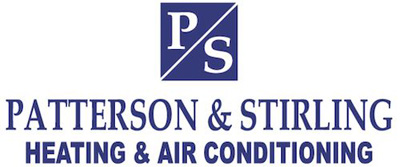
Buying your first home is thrilling. You’re likely juggling numerous details about making the right choice. We believe that gaining insight into your future HVAC system is crucial. The property’s HVAC system represents a substantial investment and potential source of long-term costs, which is why due diligence helps all first-time homebuyers.
In this guide, we’ll outline seven tips for discovering all there is to know about a home’s heating and cooling system. And if you want a more in-depth opinion from the pros, don't hesitate to contact Patterson & Stirling. Our staff can share details about your options with industry insights you won’t find elsewhere.
1. What Type of HVAC System Is It?
Start by clarifying what type of HVAC system the home features. Furnaces generally last longer compared to air conditioners, and newer types of HVAC products like heat pumps feature average life spans that are impressively long. Getting the details on the make and specific model provides a clear idea of how much it might cost in upkeep over time.
2. What Is the Current System’s Age?
It’s just as smart to learn how old the HVAC system is when you're considering a new home. On average, HVAC systems should survive for around 10-12 years. Having the knowledge of when it was installed helps you prepare for any needed servicing or considerations if it might shut down for good. Older systems are more prone to problems, so budgeting for a replacement unit might be needed faster than expected.
3. Does the System Have a Warranty?
Don’t forget to look into whether the HVAC system is still under warranty. If it is, this can assist with maintenance costs. HVAC warranties typically include parts and labor, but it's important to note that details will vary. Don’t forget to look into any terms you don’t recognize to ensure you understand your coverage and any possible out-of-pocket costs.
4. When Was the Last Time It Received Maintenance?
Don't forget to check the maintenance history of the HVAC system, if this kind of history is accessible. This kind of information can reveal if there have been regular problems or how much upkeep was provided. Ask about records for key tasks like filter changes, which can indicate it received regularly scheduled tune-ups.
5. Are You Aware of the System’s Energy Efficiency Ratings?
Purchasing a home with a heating and cooling system with great energy efficiency means smaller utility bills and a smaller environmental impact. Locate the seasonal energy efficiency ratio (SEER) ratings for air conditioning and the annual fuel utilization efficiency (AFUE) for furnaces. High SEER ratings mean more efficient cooling throughout the season, while higher AFUE ratings indicate that the fuel is efficiently converted into useable heat.
6. Have You Noticed Signs of Problems After Completing an Informal Inspection?
Even without the know-how of an HVAC technician, you can still take a moment to inspect the HVAC system on your own. Keep an eye out for potential issues that might have been overlooked. This can mean bizarre noises, stubborn patches of the house that are too hot or cold and attempts to hide any visible damage.
7. Is an Experienced HVAC Technician Available to Help?
If you're still hesitant to make an offer because of the overall state of the HVAC system, it's beneficial to get input from trained HVAC technicians. They will be much more likely to catch things you may not know about, such as leaks in the refrigerant, damage to the wiring or inefficient ductwork.
A Consultation with Patterson & Stirling Simplifies Your Home-Buying Journey
Choosing your first home is meant to be a joyful event, and Patterson & Stirling wants to ensure it stays that way. Get in touch with us at 814-308-0416. We can go over the details about how our HVAC services ease your mind, giving you what you need to step into your new home with confidence.


